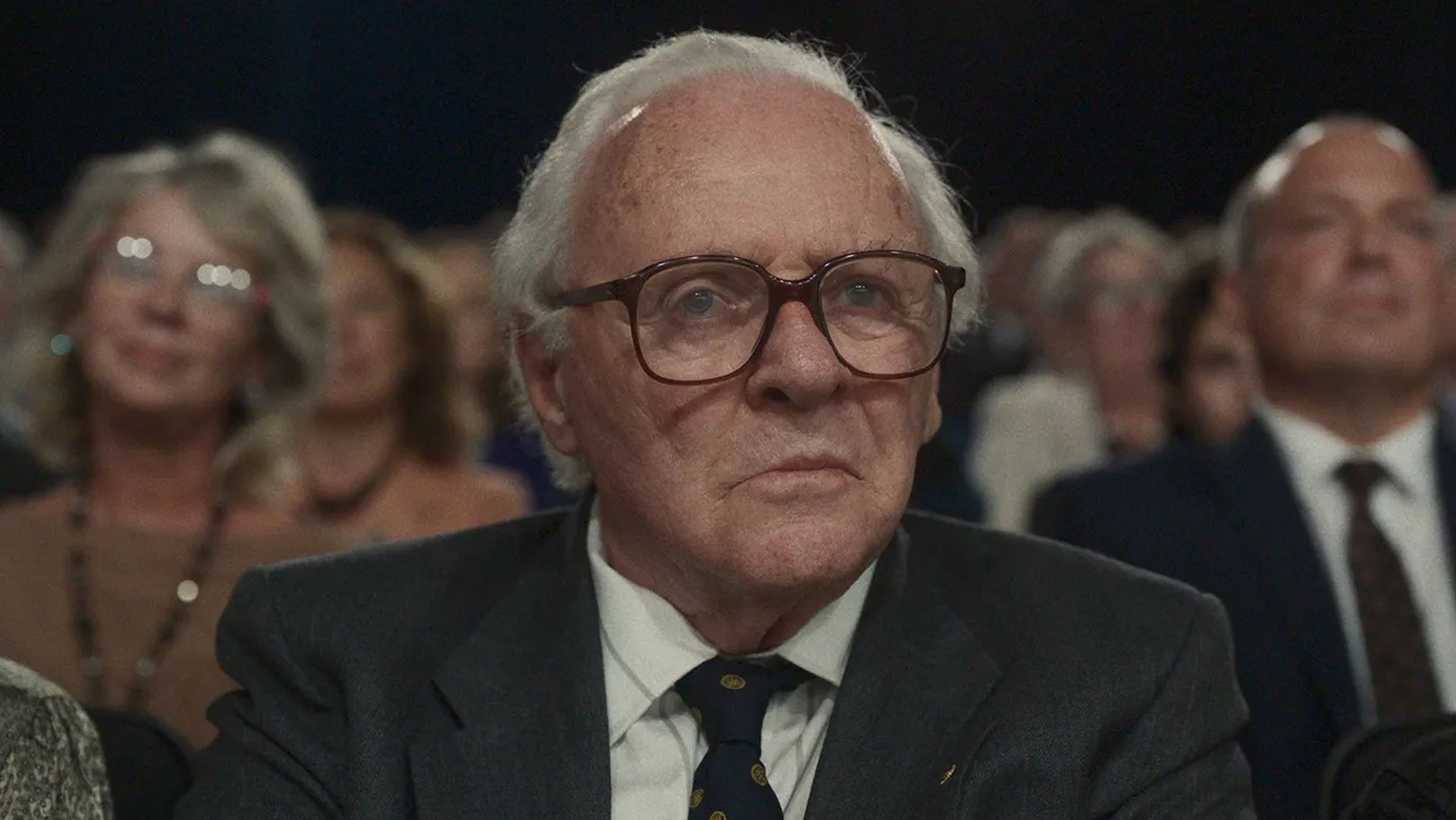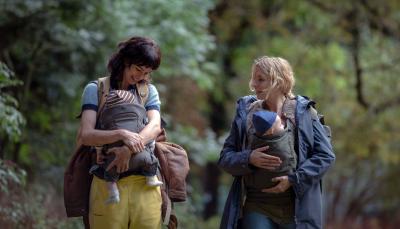The Rote Pleasures of 'One Life' Are Not Enough

Johnny Flynn as Nicholas Winton in 'One Life'
Warner Bros. Pictures
For American or international audiences, who perhaps only occasionally peer into the hysteria that is the United Kingdom, there was a year-long obsession in the media with an extremely elderly gentleman called Captain Tom. This military veteran attempted to walk the length of his garden 100 times to raise money for the NHS (Britain’s nationalized and underfunded health service) in the early months of COVID. Soon, the UK media amplified his story as an example of altruistic heroism in the bleak peak of the pandemic.
Captain Tom Moore passed away in 2021, but not before his family had started exploiting the fame, prestige, and money that came with his fundraising. The charitable foundation set up in his name recently announced its closure after an investigation from the Charitable Foundation and a dodgy spa extension proposal. Around the same time, at TIFF 2023, One Life premiered – a film following the humanitarian Nicholas Winton, who rescued hundreds of Jewish children in Czechoslovakia in the year leading up to WW2’s outbreak.
One Life capitalizes on the delirious “Captain Tom fever” that Britain experienced during one of its most shut-in, glued-to-the-media, and optimism-starved months of the 21st century; when viewed outside that bubble, it’s facile and sentimental. Nicholas Winton’s story should resonate during an era where hostility towards refugees is at a record high, but James Hawes’ rendition of Winton’s missions suffers from a surface-level wannabe-prestigious sheen that plays the events insultingly safe and pandering.
One Life reeks of all the emotional complexity of one of those inspirational Facebook videos of war victims being reunited – a comparison that feels especially apt, seeing as how one of them exists of Nicholas Winton. The film is structured in a predictable but not inherently improper way – in the 1980s, an elderly Nicholas (Anthony Hopkins) is clearing out his lifetime of personal archives in his quiet family home, having never been honored for his humanitarian work. Intercut with this is younger Nicholas (Johnny Flynn) fighting to rescue the Jewish Czech children from Nazi peril before the outbreak of the war cuts him off from aiding any persecuted person in Europe altogether.
Despite its unimaginative construction, there are inherent pleasures to fact-based period dramas like One Life that persist even when the storytelling is so rote. Winton’s determination to act humanely in the face of pre-war international bureaucracy is a compelling narrative. The deeper issue with the film’s pedestrian plot structure is that for 90% of the story, everything of interest happened in the past. Hopkins spends a large part of the film sitting around, reminiscing, sorting boxes, and drinking tea – once or twice; he breaks down with convincing anguish that still feels, on the film’s part, calculated.
The reason for older Winton being in the narrative at all is because One Life builds itself around the recreation of an episode of the British consumer affairs TV show That’s Life! – if you know about Winton’s story, it’s because of a frequently viral studio audience moment from the show. Having a national treasure like Hopkins experience one of the most moving clips from British daytime telly is the raison d’etre for the film’s existence, but the climactic scene itself is surprisingly flat. Regular TV director James Hawes (director of Slow Horses Season 1) is stuck between underplaying and overstressing the dramatic potential of the scene – a consequence of treating everything that came before so uncreatively.
Winton’s work was historic and saved hundreds of endangered lives, but how his life is culturally framed can miss key lessons. In many Western historical narratives, the individual is centered; our attention is drawn to one or several people rather than asking questions about the historical context of their actions. Why was it such a struggle for the 689 children to be rescued from Czechoslovakia; why did his pre-war humanitarianism stand out? Why did Britain not make it easier for refugees to escape Nazi persecution, why did they charge £50 (in 1938 currency!) for every child that would be housed safely on their shores?
One Life positions Winton as an example of enduring British compassion without reckoning with how Winton was an exception in a system that remains hostile to the displaced today. One Life is so intent on moving us with his heroism that it spends nearly no time questioning why Winton needed to act so heroically.
Because of our fetishization of anything to do with the struggles of WW2, Britain has decided that those persecuted by the Nazis are “good” refugees, who, above others, deserve our support and protection – but putting moral distinctions onto the world’s displaced is hideous. Britain has little time to contemplate what to do with all the historical and current refugees from conflicts we have waged or funded because they do not fit into the neat boxes of conservative historical revisionism. One Life is sanded-down, shallow storytelling that seeks to move in the broadest and most impersonal ways possible; the film shows no interest in understanding Winton and his humanitarianism from any angle other than a sentimental one. This is national cinema made manifest, and it’s as tedious as it is troubling.
One Life will arrive in theaters in the U.S. on New Year’s Day, January 1, 2024.






